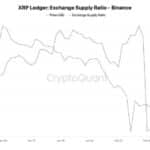(China may already have zero growth, heck it may already be contracting. The headline number won't reflect it however. It's called putting lipstick on a pig with Chinese characteristics - AM)
Commentary by William Pesek
Jan. 7 (Bloomberg)
Anyone who said a year ago that China’s economy was crisis-bound was dismissed out of hand. Today, skeptics have lots of company.
“This year is going to be characterized by much, much weaker growth in China than I think people are anticipating,” says Jim Walker, chief economist at Asianomics Ltd. in Hong Kong.
That may be news to the World Bank, which forecasts China will expand 7.5 percent in 2009. The government is targeting 8 percent growth, believing the 4 trillion yuan ($586 billion) stimulus package it announced in November will boost the world’s fourth-biggest economy.
Citigroup Inc. agrees. “The most important reason supporting our confidence about 8 percent growth is the government’s will and ability,” says Huang Yiping, the bank’s chief Asia-Pacific economist in Hong Kong.
That’s the problem. Chinese officials have done a masterful job generating growth, creating jobs and reducing poverty. They have done so with impressive regularity and earned the trust of many economists and investors. It’s important to remember, though, that external trends made China’s success possible.
The global boom of the 1990s floated most boats, including China’s. Even during Asia’s crisis in the late 1990s, rapid U.S. demand supported the most populous nation. The real acceleration in growth that caught investors’ attention came after China’s accession to the World Trade Organization in 2001.
There’s no doubt that China’s leaders have the will to support growth. The question is their ability to do so while all of the world’s economic engines sputter. Yes, all.
That issue featured prominently in the annual “10 Outrageous Claims” release of Saxo Bank. Each year, analysts at the Danish Internet trading bank come up with a list of “Black Swan” events, or unexpected ones with great impact. This year’s candidates include the odds of revolution in Iran, crude oil falling to $25 a barrel, the Standard & Poor’s 500 Index sliding to 500 and Italy scrapping the euro.( Well $25 a barrel isn't that outrageous and S&P 500 is a PE of ~12- AM)
A Saxo Bank team led by London-based Chief Investment Officer Steen Jakobsen also pondered this question: Will we see a China crisis with gross domestic product at 0 percent?
Their rationale is that the export-driven industries of China’s economy will be hurt by the freefall in U.S. growth. Many commodity-related investments in recent years will sour with global demand. And since China has been running an overly expansionary monetary policy for many years, the gamut of speculative bubbles will be revealed.
Clearly, zero growth isn’t the most likely outcome. Walker, for example, expects 0 percent to 4 percent this year, with a 30 percent probability of a contraction.
For a developing and highly populated nation like China, 5 percent growth is as good as zero. For Japan, such output would be a dream; for China it would be a nightmare.
Economists have long agreed that China needs growth in the vicinity of 10 percent to placate the masses. The social contract is this: We will make you richer, you won’t question the government. If growth slows to 5 percent, never mind zero, Chinese officials will be in a very bad way.
Tuesday, January 6, 2009
Subscribe to:
Post Comments (Atom)



No comments:
Post a Comment